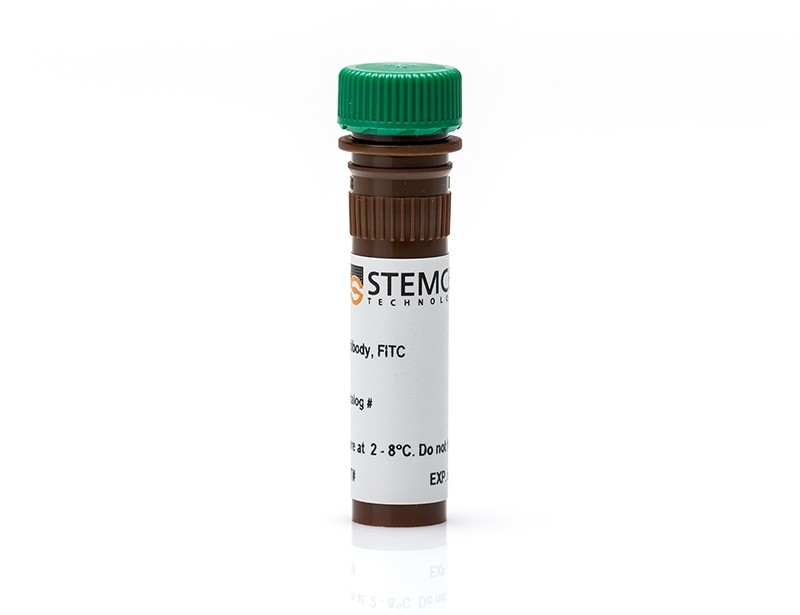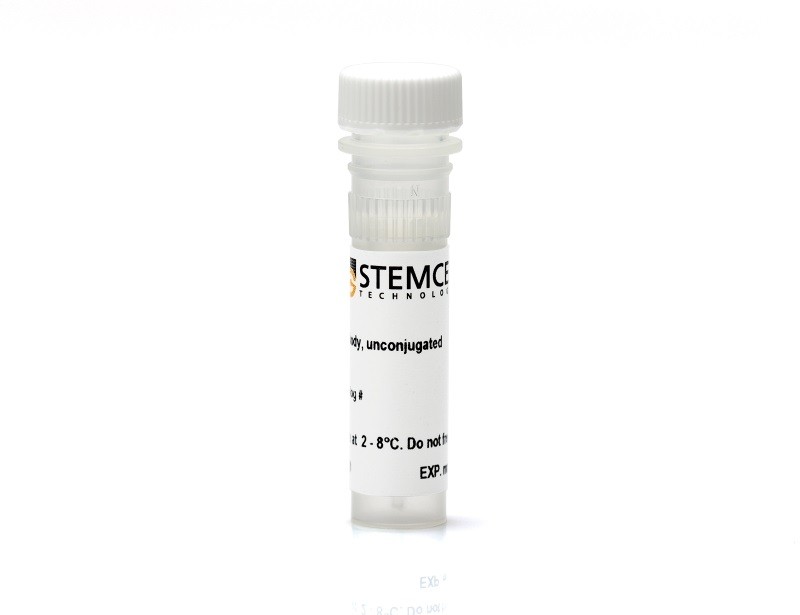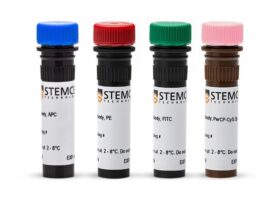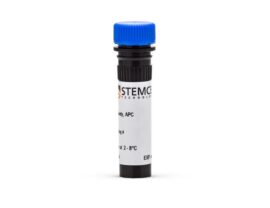

Overview
The 6H6 antibody reacts with human CD123 (IL-3 receptor subunit α), an ~70 kDa type I transmembrane glycoprotein belonging to the type I cytokine receptor family (type 5 subfamily) and the immunoglobulin (Ig) superfamily. CD123 constitutes the ligand-binding α chain of the heterodimeric IL-3 receptor. CD123 binds IL-3 with low affinity per se, but when associated with CD131 (the signal-transducing β chain of the receptor), high-affinity binding of IL-3 is observed. CD123 is expressed by hematopoietic progenitor cells, endothelial cells, basophils, eosinophils, mast cells, monocytes, macrophages, dendritic cells, megakaryocytes, a subset of B cells, and by neutrophils if cultured in the presence of granulocyte-macrophage colony-stimulating factor (GM-CSF). IL-3 binding to CD123 stimulates proliferation, differentiation, and viability of hematopoietic cells. CD123 is highly expressed in malignancies such as acute leukemia. The 6H6 antibody does not inhibit binding of IL-3 to either CD123 or the IL-3 receptor.
Subtype: Primary Antibodies
Target Antigen: CD123 (IL-3Rα)
Alternative Names: hIL-3Ra, IL3R, IL3RAX, IL3RAY, IL3RX, IL3RY, IL-3Ra, IL-3 receptor alpha SP2 isoform, Interleukin-3 Receptor alpha, MGC34174
Reactive Species: Human; Rhesus; Sooty Mangabey
Conjugation: APC; Biotin; FITC; PE; Unconjugated; PerCP-Cyanine5.5
Host Species: Mouse
Cell Type: Granulocytes and Subsets; Dendritic Cells; Hematopoietic Stem and Progenitor Cells; Myeloid Cells
Application: Flow Cytometry; Functional Assay; Immunofluorescence; Immunocytochemistry; Immunohistochemistry; Immunoprecipitation; CyTOF; Western Blotting
Area of Interest: Immunology
Clone: 6H6
Gene ID: 3563
Isotype: IgG1, kappa








